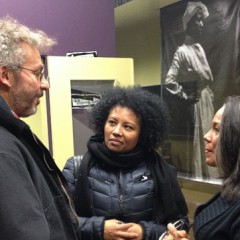
Toni Tipton-Martin at Zingerman’s
This past week, the Zingerman’s Community of Businesses was very pleased to welcome author Toni Tipton-Martin to events at the Roadhouse and ZingTrain. Toni is an award-winning journalist, founder of the Jemima Code Project, and the author of the forthcoming Jemima Code book. On Tuesday, Toni was the featured speaker at the 8th Annual African […]
Read more »


Zingerman’s Art for Sale